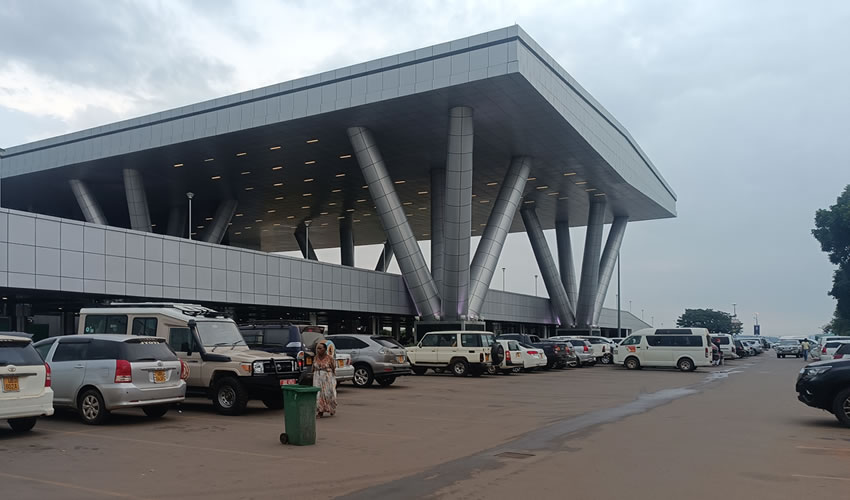As Uganda embarks on a journey of social and economic transformation, the role of its criminal justice institutions becomes increasingly critical. The Criminal Investigations Directorate (CID) and the Office of the Director of Public Prosecutions (ODPP) stand at the forefront of this transformation, driving efforts to uphold the rule of law, ensure justice, and foster a stable environment conducive to economic growth. Their contributions are not only vital in maintaining security but also in creating a foundation for sustainable development.
The CID, a key arm of the Uganda Police Force, plays a crucial role in maintaining national stability. It is responsible for investigating serious crimes, including corruption, organized crime, and terrorism. Its effectiveness in conducting thorough investigations and ensuring that perpetrators are brought to justice directly influences the safety and security of Ugandan citizens.
It’s evident that in 2023, there was a 1.5% decrease in the number of crimes reported to police from 231,653 cases reported in 2022 to 228,074 cases. This does not guarantee the fact that crime has reduced due to reduction of people reporting cases at police but rather appreciating that the force has focused on strengthening discipline and adherence to human rights by introducing disciplinary courts in all districts across the country. The introduction of disciplinary courts marks a significant milestone for the Uganda Police Force. These courts aim at enforcing discipline within the force, ensuring that officers adhere to professional standards and human rights. For instance, out of 933 complaints of human rights violations by the police, 794 were thoroughly investigated.
Therefore, the CID’s primary mandate is to investigate criminal activities that threaten public safety. By effectively tackling crimes such as murder, robbery, and assault, the CID helps to create a safer environment for citizens. This safety is foundational for economic activities, as it encourages investment and promotes confidence among business owners and potential investors.
Corruption remains a significant challenge for Uganda’s development. The CID's efforts in investigating and curbing corruption are essential for promoting transparency and accountability. By addressing corruption, the CID helps to ensure that resources are utilized effectively and fairly, thus supporting equitable economic growth and development.
Organized crime, including human trafficking and drug trafficking, poses a severe threat to social and economic stability. The CID’s specialized units focus on dismantling criminal networks and prosecuting their leaders. This work is crucial in preventing these illegal activities from undermining societal structures and economic progress.
By carrying out high-profile investigations and securing convictions, the CID enhances public confidence in the criminal justice system. This trust is vital for encouraging cooperation from the community, which in turn supports the CID’s efforts in fighting crime and maintaining order.
The ODPP, on the other hand, is responsible for prosecuting criminal cases and providing legal guidance to the police and other law enforcement agencies. Its role is integral to the criminal justice system, ensuring that justice is served and that the rule of law is upheld.
It ensures that criminal cases are prosecuted fairly and transparently. By upholding the principles of justice, the ODPP helps to prevent wrongful convictions and ensure that the guilty are held accountable. This fairness is essential for maintaining public trust in the legal system, which is a cornerstone of a stable and just society.
A robust legal system, supported by effective prosecution, creates a favorable environment for economic development. Businesses and investors are more likely to engage in an economy where legal disputes are resolved fairly and efficiently. The ODPP’s work in prosecuting economic crimes, such as fraud and embezzlement, ensures that business operations are not undermined by criminal activities.
The ODPP also plays a role in advising and guiding other institutions on legal matters. By providing expertise and legal support, It helps to strengthen institutional integrity across the board. This guidance is crucial for ensuring that all sectors operate within the legal framework, thus supporting overall social and economic stability.
Beyond individual cases, the ODPP’s efforts contribute to broader social transformation. By addressing crimes that impact society at large, such as human rights violations and corruption, the ODPP helps to promote a culture of respect for the rule of law. This cultural shift is essential for achieving long-term social and economic progress.
The collaboration between the CID and ODPP amplifies their impact on Uganda’s stability and development. Joint efforts in investigating and prosecuting crimes ensure that the criminal justice system functions effectively and efficiently. This partnership not only enhances the overall effectiveness of the justice system but also ensures that resources are utilized optimally.
In a nut shell, the Criminal Investigations Directorate and the Office of the Director of Public Prosecutions are vital to Uganda’s social and economic transformation. Through their dedicated efforts in investigating and prosecuting crimes, these institutions play a crucial role in maintaining public safety, promoting justice, and supporting economic development. As Uganda continues to advance towards its development goals, the importance of these agencies in ensuring a stable, fair, and secure environment cannot be overstated. Their work is fundamental to creating a thriving society where citizens can live and work with confidence, paving the way for sustained growth and prosperity.
Written by Dickson Namisi








Comments